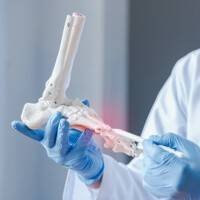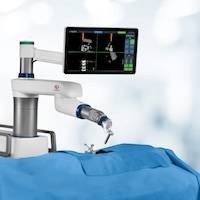
As we age, the knee joints undergo a natural aging process, leading to the gradual wear of joint cartilage, which decreases the function and flexibility of the knee. This condition is particularly common among the elderly; however, in recent years, the age of onset for degenerative arthritis has been gradually decreasing. Research shows that younger patients may face knee health issues due to improper lifestyle choices, lack of exercise, or excessive physical activity. Additionally, being overweight and previous knee injuries, such as torn ligaments or meniscus injuries, increase the risk of developing knee arthritis in the future, making it easier for patients to progress to degenerative arthritis.
Early-stage patients can alleviate their condition through non-pharmacological treatments and exercise. In terms of exercise, training the quadriceps muscles can help reduce symptoms caused by joint degeneration. Doctors will introduce training methods suitable for both older and relatively younger patients. In terms of pharmacological treatment, the most common injection therapy is hyaluronic acid injection. Another relatively new therapy is high-concentration autologous protein and platelet injection (Autologous Protein Solution), which involves injecting platelet factors into the knee joint to help reduce related inflammation and repair damaged cartilage.
If the condition is severe, patients may require knee replacement surgery. In recent years, Hong Kong has introduced the latest robotic-assisted joint replacement surgery, which utilizes computer navigation and robotic arm technology for precise bone cutting and artificial joint implantation. This represents a more accurate and efficient approach to knee replacement. According to the latest data, many elderly patients over the age of eighty have shown very good recovery progress after surgery, without enduring excessive pain.
Let's listen to Dr. Cheung Man Hong, orthopedic consultant, as he explains.
Radio Recording:
https://www.rthk.hk/radio/radio1/programme/healthpedia/episode/985724
Television Program:
https://www.rthk.hk/tv/dtt31/programme/healthpedia_tv/episode/980520



















